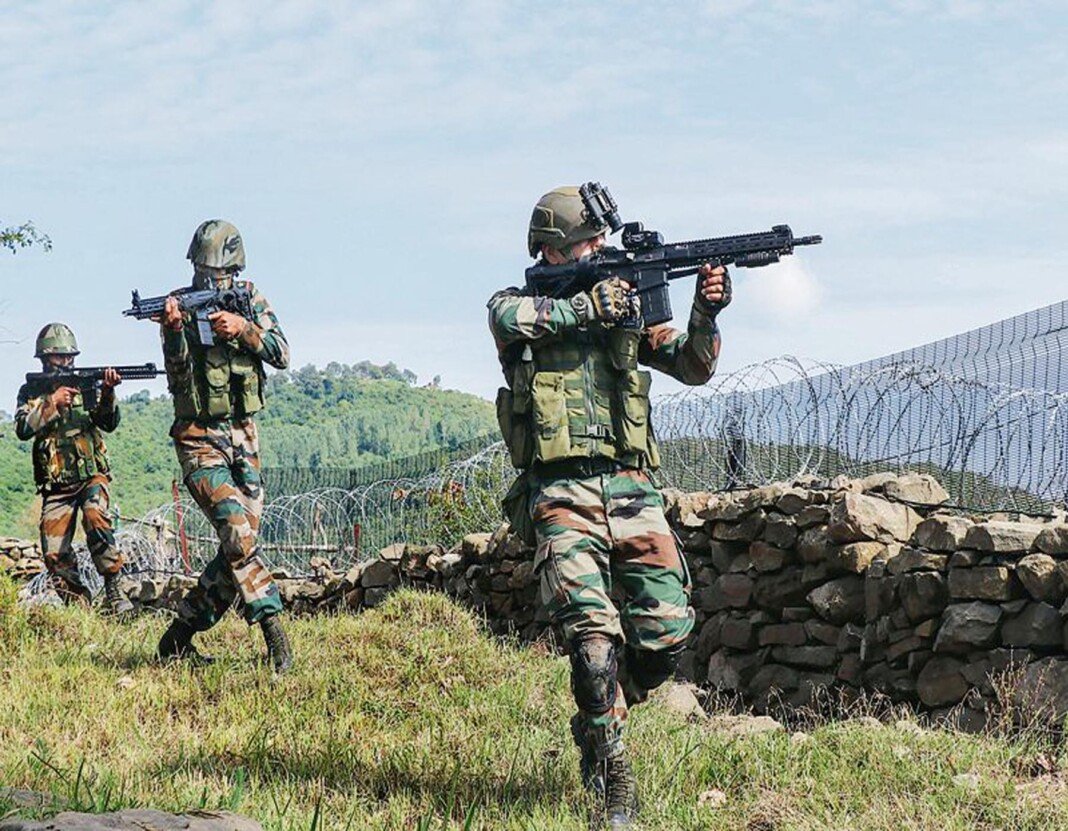By: Dipak Kurmi
The former Jammu and Kashmir Governor NN Vohra, deeply committed to national security and defense, orchestrated an impactful event at the India International Centre (IIC), New Delhi, in September 2021, featuring a speech by then CDS Gen Bipin Rawat. Last month saw the release of “India’s National Security Challenges,” a book skillfully curated by Vohra. Proposing the establishment of a dedicated national security service to bolster the National Security Council secretariat, he is actively shaping the ongoing drafting of the National Security Strategy (NSS). A crucial precursor to formulating the NSS involves conducting a comprehensive national defense and security review, the outcomes of which will inform both the NSS and the National Defence Strategy.
The IIC witnessed the preview of the book, featuring former NSA Shivshankar Menon as the keynote speaker and former Foreign Secretary Shyam Saran as the event’s moderator. Notably, it was disclosed that the National Security Strategy (NSS) had been prepared and poised for launch on three occasions, only to be thwarted by political leadership each time. The three security experts emphasized that the NSS document remained unpublished due to political apprehensions about accountability. Pondering over their insights, I questioned why they couldn’t convince political leaders to release this crucial document vital for higher defense management. Additionally, I wondered why our service chiefs, lacking strategic guidance, relied on Prime Ministerial speeches at Commanders’ conferences instead of seeking direction from the Defence Minister and the Prime Minister. Despite the preparation of operational directives in 2009 and 2019, with one possibly unissued, there seems to be reluctance on the part of the Defence Minister and his team.
The peril of delaying the preparation of a National Security Strategy (NSS) document is particularly pronounced in this era of wars, especially for a nation aspiring to occupy a prominent position on the international stage. Navigating the complexities of nurturing the fourth-largest standing military globally without strategic political guidance entails significant risks and the potential for miscalculations. In the current year alone, three wars have unfolded: the Russia-Ukraine conflict, now in its 21st month, Azerbaijan’s offensive against Armenia, and Israel’s retaliatory actions in Gaza. These high-intensity and prolonged wars of attrition have showcased the deployment of advanced technology, elite weaponry, air power, missiles, and drones, with a notable focus on targeting populated areas.
The government could initiate by releasing a White Paper instead of the National Security Strategy (NSS), as advised by Menon. This approach, commonly adopted by many countries, should be complemented by the subsequent development of a comprehensive national security policy document. It’s noteworthy that every democracy, without exception, possesses either the NSS or the National Security Directive (NSD). Pakistan recently unveiled its National Security Policy 2022-26, while China consistently produces periodic equivalents. Under the leadership of President Xi Jinping as Commander-in-Chief, China executed its most extensive defense reforms, involving restructuring and theaterization. The announcement that the National Security Council (NSC) Secretariat, led by NSA Ajit Doval, is tasked with drafting the NSS may not be a groundbreaking revelation, considering that three prior drafts can potentially serve as its foundational framework.
The National Security Strategy (NSS) completion is reportedly a prerequisite before progressing with the theaterisation initiative, as credible reports suggest a return to the drawing board on this matter. Persistent challenges in the evolution of theaterisation, such as defining geographical and operational limits, determining the number of theatres, establishing the ranks of theatre commanders, and addressing the reduced role of service chiefs, have resurfaced. Civilian bureaucrats express concern over an increase in four-star-rank officers, viewing it as a potential threat to their de facto control over the military. Despite a prediction by an Army Commander six months ago that PM Modi would announce the formation of theater commands on August 15, this did not materialize, seemingly due to a lack of consensus among the services. Another Army Commander has confidentially shared that no significant progress on theaterisation is anticipated until after the 2024 elections, even if the NSS is prepared.
The term consensus is frequently misused and misconstrued, much like the often-invoked strategic partnership. India maintains strategic partnerships with numerous countries, marked by various adjectives. The establishment of the Chief of Defence Staff (CDS) had been a longstanding desire for India, with its absence attributed to inter-service rivalry or a purported lack of consensus. Ultimately, the ruling BJP made a political decision to appoint the CDS without seeking consensus. In contrast, countries like the US, the UK, and Australia have appointed the CDS through the political executive, rather than relying on a consensus-based approach.
The absolute unattainability of absolute security was emphasized by Menon, highlighting deterioration in the external situation over the past decade and a half. The breakdown of deterrence on the Line of Actual Control (LAC) amid a political and military standoff with China adds to the complexities. The reforms initiated by Gen Rawat remain incomplete, with the Ministry of External Affairs (MEA) and the Ministry of Defence (MoD) operating in silos. Concerns are raised about the Agnipath scheme adversely affecting relations with Nepal. In conclusion, Saran pointed out the evident lack of political guidance in the national security process, referencing the confusion that ensued after the 2008 Mumbai terror attacks. He advocated that upon the release of the National Security Strategy (NSS), efforts should commence towards formulating a national nuclear strategy. Mentioning the National Security Advisory Board’s production of a 40-page national nuclear strategy in 2015, Saran highlighted the need to revisit India’s nuclear security policy, initially framed in 2004. The update came in response to Pakistan’s introduction of tactical nuclear weapons following India’s Cold Start doctrine, sparking a debate on reviewing India’s No First Use policy – a matter that remains unresolved.
The launch of the Agnipath scheme showcased the political leadership’s adeptness at evading responsibility, consistently placing the burden on the military. The government’s implementation of this scheme, ostensibly aimed at bestowing upon the nation a more youthful armed force and reintegrating ‘unre-enlisted’ Agniveers into society as disciplined members, serves as a notable example. However, this apparent effort to reduce the salary and pension bill through a deceptive approach holds significant implications for military manpower and the National Security Strategy (NSS). (The writer can be reached at dipaknewslive@gmail.com)







